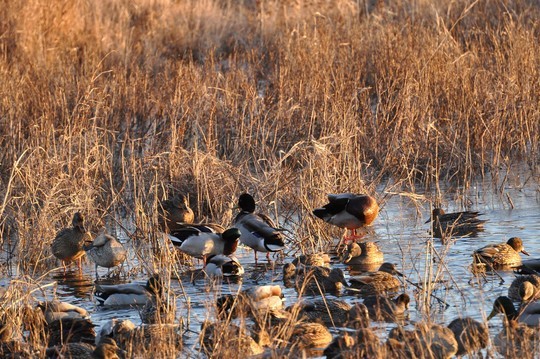Preserve Wisconsin’s legacy: Renew the Knowles-Nelson Stewardship Program | Opinion
Despite the program’s proven success, the Knowles-Nelson Stewardship Program faces ongoing political and financial threats.
- Wisconsin’s Knowles-Nelson Stewardship Program supports local economies and protects natural resources, but faces funding challenges.
- The program has shifted focus to maintaining aging infrastructure in state parks, which suffer from more than $1 billion in deferred maintenance.
- Despite outdoor recreation’s significant economic contribution, Wisconsin’s state park funding lags behind other states.
- Potential funding solutions include using state surplus funds, implementing a “State Parks Passport” program, and allocating sales tax revenue.
The Knowles-Nelson Stewardship Program is a rare bipartisan success story in Wisconsin. For decades, it has protected our natural resources while boosting local economies across the state. Investments through the program have enhanced public lands and outdoor infrastructure, drawing tourists, increasing property values, and supporting local businesses like sport shops, hotels and restaurants.
Communities such as Plymouth, Sheboygan, Manitowoc, Elkhart Lake, Fond du Lac and Two Rivers benefit from amenities funded through Stewardship, which has enhanced local parks including Kettle Moraine State Forest, Sheboygan Broughton Marsh Park & Campground, Point Beach and Kohler-Andrae State Park.
In recent years, the focus of Stewardship has shifted from land acquisition to upgrading and maintaining state park infrastructure — much of which is aging and underfunded. Wisconsin’s state parks face more than $1 billion in deferred maintenance. Most Wisconsinites don’t realize that in 2015, taxpayer support for state park operations was eliminated, making Wisconsin one of the only self-funded state park systems in the country. Much of the infrastructure still in use today was built in the 1930s by the Civilian Conservation Corps and is now in need of repair or replacement.
Outdoor recreation is a cornerstone of Wisconsin’s economy, contributing more than $10 billion annually to the state’s GDP — growing nearly twice as fast as the overall economy over the past decade. The sector supports nearly 10,000 manufacturing jobs and fuels our $25 billion tourism industry. Yet, Wisconsin ranks dead last in state park funding per visit — trailing even Mississippi and Texas.
Despite the program’s proven success, the Knowles-Nelson Stewardship Program faces ongoing political and financial threats. Though many of its subprograms require a 50% local match — effectively doubling the state’s investment — funding remains inadequate. We need to consider sustainable alternatives to long-term debt funding, such as:
- Using part of the state’s surplus to retire debt and establish a permanent endowment;
- Adopting a State Parks Passport program, modeled after Michigan’s, which triple what the Wisconsin park sticker does; and
- Allocating a small percentage of sales tax revenue to conservation efforts.
Wisconsin spends only $19.6 million annually on its state parks — far less than neighbors like Minnesota and Michigan, which invest $70-$90 million. And it shows. Visitors encounter crumbling bathrooms, outdated septic systems, unsafe trails and closed facilities as a result of disrepair. Many families rely on public lands for affordable access to nature, recreation and mental well-being — they can’t afford private cottages or land.

The Stewardship Program is essential to Wisconsin’s environment, economy and quality of life. A recent 2025 New Bridge Survey found 91% of voters support continued funding — including 80% of Republicans and MAGA-aligned voters. Voters also view legislators more favorably when they support Stewardship.
Unless renewed in the 2025 budget, this vital program could expire in 2026. As the Legislature begins its deliberations, I urge lawmakers to recognize the enormous value of the Knowles-Nelson Stewardship Program and secure a long-term, sustainable future for Wisconsin’s natural legacy.
Michael McFadzen is president of the Friends of the Kettle Moraine State Forest and a member of the Senate District 9 Stewardship Team.
